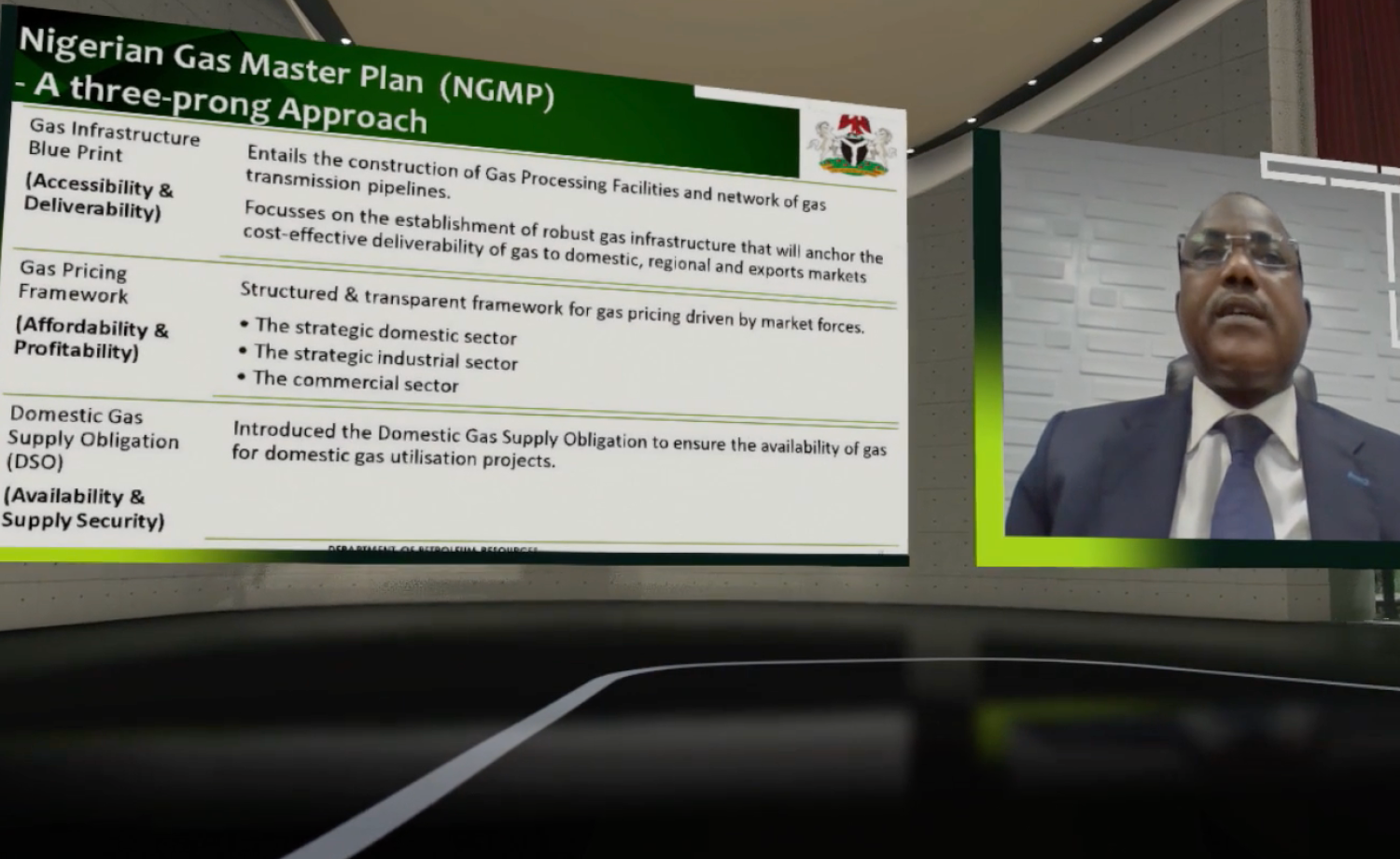Keynote: the Nigerian Gas Master Plan

"While the energy transition is real, the Nigerian oil and gas sector is geared towards realizing government aspiration. And great investment opportunities exist in this oil and gas value chain."
Mr. Auwalu discussed the changing face of energy and gave an overview of Nigerian gas resources before digging into the Nigerian Gas Master Plan (NGMP).
Nigeria currently has gas reserves of 203 TCF, which makes it first in Africa and ninth in the world. Its gas is very sweet and rich, with production currently at 8 BCF per day, 3.5 BCF/D of which is exported. Flaring is currently at about 850 MMcf per day.
The NGMP is a set of solutions designed to address growth in the domestic gas market, supply challenges to ensure availability, affordability for users, infrastructure development, long-term supply security, as well as robust legal, regulatory, and fiscal policies that will all combine to enable the country’s energy freedom. In short, the NGMP’s core objective is to grow the Nigerian economy with gas.
The NGMP has a three-pronged approach:
- Its Gas Infrastructure Blueprint focuses on accessibility and deliverability. It entails the construction of gas processing facilities and a network of gas transmission pipelines. It focuses on the establishment of robust gas infrastructure that will anchor the cost-effective deliverability of gas to domestic, regional, and export markets
- Its Gas Pricing Framework focuses on affordability and profitability with a structured and transparent framework for gas pricing driven by market forces—with distinct focuses on the strategic domestic sector, strategic industrial sector, and the commercial sector
- The Domestic Gas Supply Obligation (DSO) focuses on availability and supply security to ensure the availability of gas for domestic gas utilization projects
Looking at measures of progress, Mr. Auwalu said that infrastructure now includes four major pipelines (the 110-km OB3, 342-km ELPS II, 587-km AKK, and 2,000-km TNGP) with a key enabler in the Nigerian Gas Transport Network Code—a legal and contractual framework between gas network players that was launched in February, 2020 and commenced full operations in August. There are also five gas processing facilities in Nigeria with a total capacity of 1,470 MMscfd of gas and 7.5 million tonnes of fertilizer. The Domestic Supply Obligation (DSO) Administration has increased compliance and addressed bottlenecks through a rigorous audit process and incentive framework. The Gas Pricing Framework includes a transitional pricing regime for the strategic domestic sector, and a seller-willing buyer regime over-DSO volumes—laying the groundwork for a transition to a fully developed, market-led regime.
The ultimate focus of the NGMP, said Mr. Auwalu, is gas-to-people—using Nigeria’s gas industry to grow its GDP through resource optimization, investment, job creation, environmental sustainability, economic growth and sustainability, infrastructure development, and industrialization.
To that end, Nigeria sees the 2020s as the decade of gas for development. And Mr. Auwalu believes that, in 10 years, the NGMP will have made a huge impact on Nigeria’s economy and opportunities.



